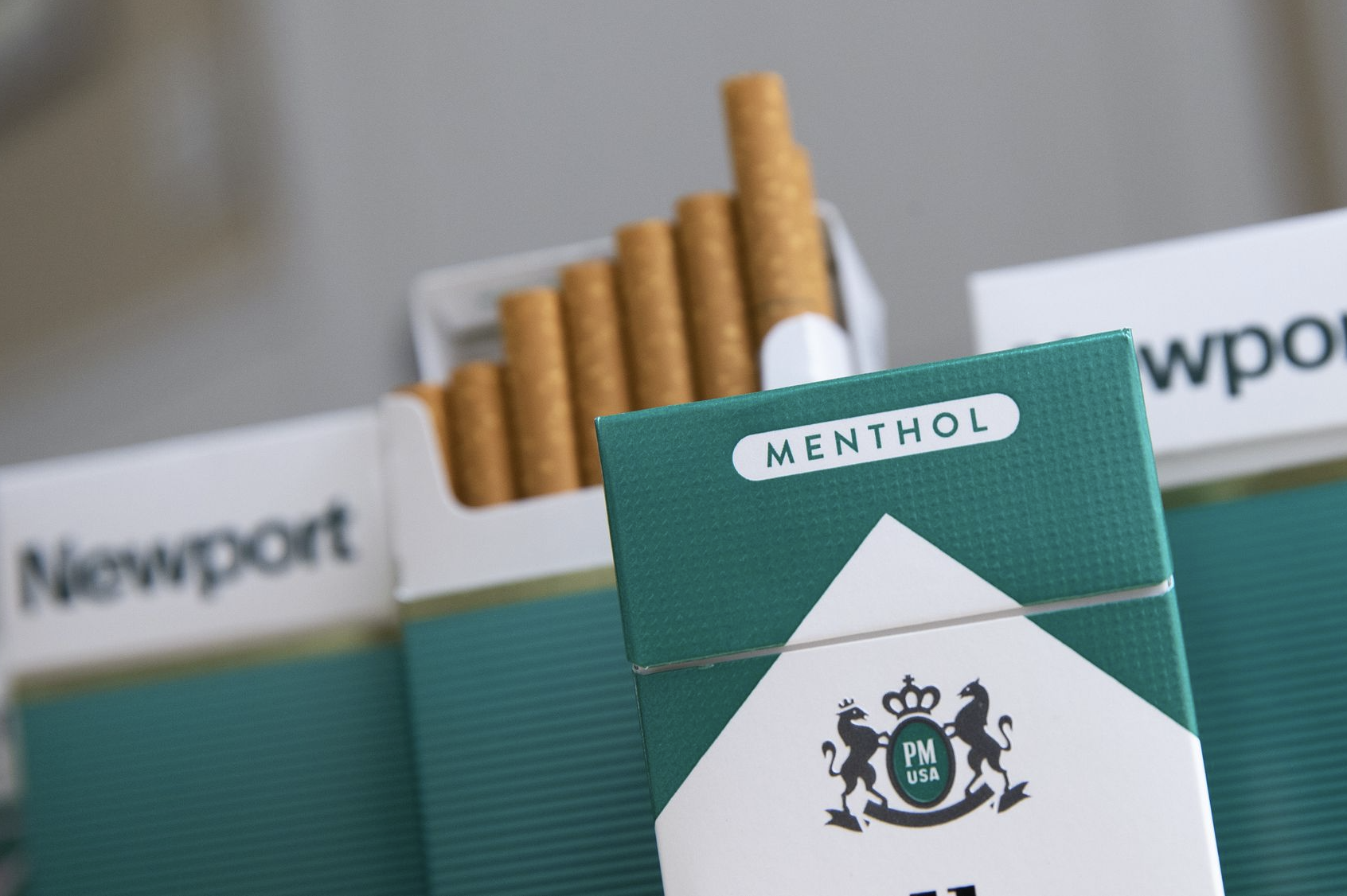The proposed move wouldn’t take effect until at least 2024
The Biden administration proposed a national ban on menthol cigarettes, advancing a regulatory plan that could sweep from the market more than a third of all cigarettes sold in the U.S. The products represent more than $20 billion in annual sales.
The Food and Drug Administration on Thursday published proposed rules laying out the details of the plan. The ban would prohibit the sale of menthol cigarettes and all flavored cigars. The FDA said it is considering allowing exemptions on a case-by-case basis for certain products, such as heated-tobacco devices or cigarettes with very low nicotine levels. The ban wouldn’t affect menthol e-cigarettes.
The proposed menthol ban wouldn’t take effect for at least two years. The FDA will invite public comments on the proposed rules; the agency must then review them all. It could publish final rules as early as 2023, and the ban could be set to take effect in 2024. At least two tobacco companies have indicated that they might then sue, which could further delay the ban.
The plan, which has been in the works for more than two decades, is the biggest move the federal government has made to curb cigarette sales since the FDA gained regulatory control over the tobacco industry in 2009.
The policy could save hundreds of thousands of lives, FDA Commissioner Robert Califf said Thursday. He said in his career as an intensive-care cardiologist, he had seen many people die of smoking-related diseases.
“We know the majority of smokers want to quit,” Dr. Califf said on a call with reporters. Prohibiting menthol in cigarettes, he said, will give them “a better shot.”
For tobacco companies, menthols are a crucial segment of the cigarette business. Because menthol smokers skew younger than average, they represent a longer potential lifetime of smoking. The share of U.S. smokers who use menthols has risen continuously, from 30.5% in 2005 to 43% in 2020, according to a Wall Street Journal analysis of data from the National Survey on Drug Use and Health.
A U.S. menthol ban would be a big blow to British American Tobacco BTI -0.17%▼ PLC, which in 2017 spent about $50 billion to take full control of Reynolds American Inc. Reynolds makes Newport, the leading menthol-cigarette brand in the U.S. Menthols account for more than half of BAT’s U.S. cigarette unit sales and roughly 30% of its global profits, according to Morgan Stanley analyst Pamela Kaufman.
“We strongly believe that there are more effective routes to deliver tobacco harm reduction than banning menthol in cigarettes,” BAT Chief Marketing Officer Kingsley Wheaton said Thursday.
Marlboro maker Altria Group Inc. MO 0.51%▲ holds the No. 2 spot in the U.S. menthol-cigarette market.
Prohibition, at least through history, hasn’t worked
Altria Chief Executive Billy Gifford
“Prohibition, at least through history, hasn’t worked,” Altria Chief Executive Billy Gifford said Thursday on a conference call with analysts and reporters. Federal regulators should focus instead on helping smokers switch to lower-risk products such as e-cigarettes, he said.
The Family Smoking Prevention and Tobacco Control Act, signed by President Barack Obama in 2009, gave the FDA regulatory authority over the tobacco industry for the first time. The law banned candy, fruit and spice flavorings in cigarettes because of their potential appeal to children, but left unsettled the question of menthol. The law stipulated that the FDA could prohibit menthol cigarettes only if it could demonstrate that a ban was a net benefit to public health and took into account unintended consequences such as an illicit market.
The agency concluded in 2013 that menthols were harder to quit and likely posed a greater health risk than regular cigarettes. But the Obama administration didn’t move the policy forward after that. In 2017, Scott Gottlieb, then commissioner of the FDA, sought and obtained support from the Trump administration to advance the menthol-cigarette ban as part of a broader regulatory plan for the tobacco industry. When he left the agency in 2019, Trump administration officials shelved the plan, according to people familiar with the matter.
Original Article by: WSJ





